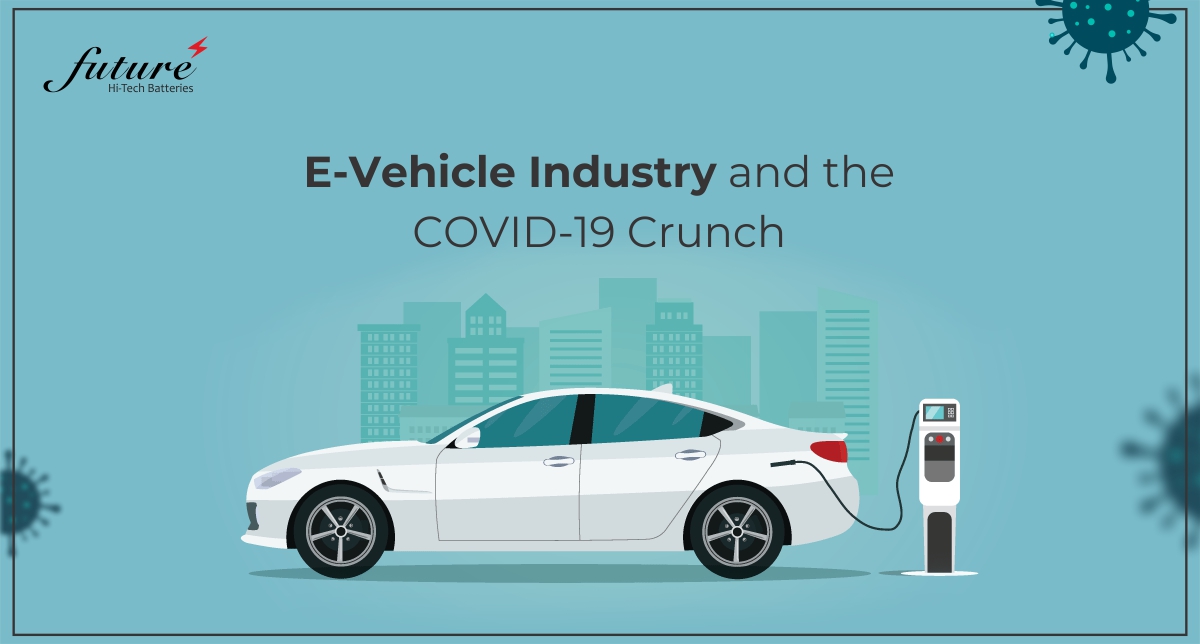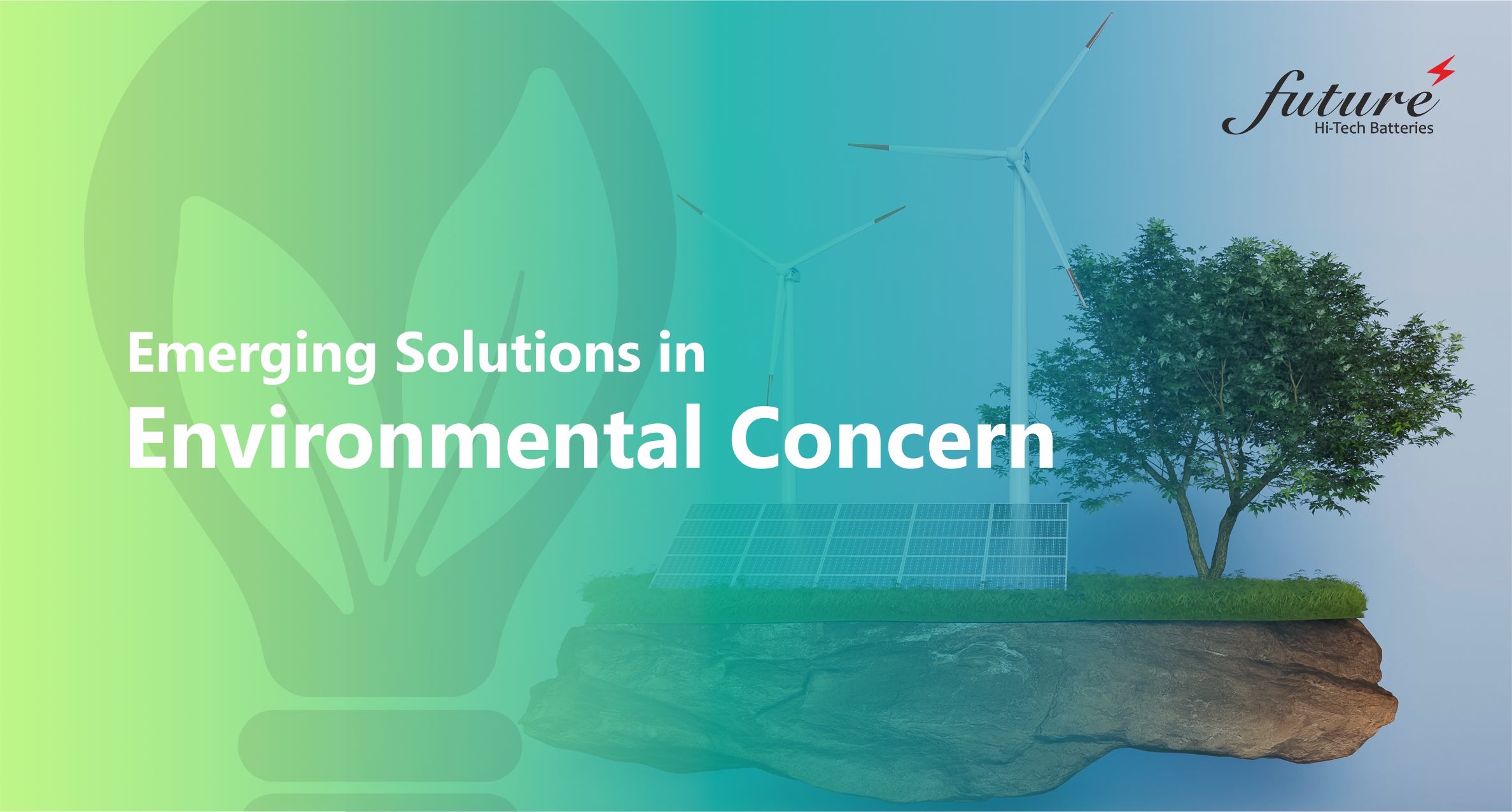The article analyses the present and future market projections for the EV sector, while assessing the impact that COVID-19 pandemic has had on the sub-sector. We also give a brief overview on Future Hi-tech Batteries Limited and its contribution in terms of inclination to customizations and the responsibility to ‘buy-back,’ and recycle used batteries.
What drives India’s Electric Vehicle (EV) segment and its transformation? Has the COVID-19 pandemic influenced growth and the pace at which the EV sub-industry is growing? We take a step back and analyse the situation.
Market Trajectory
In April 2019, Niti Aayog, the federal think tank, published a report titled ‘India’s Electric Mobility Transformation,’ which pegs EV sales penetration in India at 70 percent for commercial cars, 30 percent for private cars, 40 percent for buses, and 80 percent for two- and three-wheelers by 2030.
Also, while taking a brief look at the market for the EV segment in India – The India EV market was valued at USD 5 billion in 2020 and is expected to reach USD 47 billion by 2026 registering a CAGR of above 44% during the forecast period (2021 – 2026). Whereas, the global EV market is expected to grow at a CAGR of 33.6% from the year 2020 and will reach $2,495.4 billion by 2027. In terms of volume, this market is expected to grow at a CAGR of 21.7% to reach 233.9 million units by 2027.
Gagan Kaur, Executive Director, Future Hi-tech Batteries Limited estimates that the figures stated regarding the market worth for the Indian sector is more or less accurate and achievable. She says: “The Indian government will make these figures a reality!”, “All of us are aware of the recently launched mission of transformative mobility and battery storage schemes.” The National Mission on Transformative Mobility & Battery Storage will ensure that India captures the economic opportunities at hand, while delivering societal and environmental benefits that will improve quality of life for citizens, NITI Aayog stated via their Press Communique. The work undertaken thereof is in alignment with the Government’s vision for a more self-reliant India. The objective? To create a framework with more conducive policies while placing emphasis on infrastructure and cost-effective options to achieve advanced battery storage.
“We are also seeing a push at various state-level agencies and PSUs – they are coming up with Smart City projects,” asserts Kaur. While we do see the need for ‘Smart Cities’ sprouting across states, there is a trend where luxury car makers have shown a key interest in the EV segment, she adds. While the rise and fall in demand is a usual feature for the Lithium-Ion manufacturing industry, a key influencing factor that has played a crucial role is the COVID-19 pandemic.
The Pandemic and Climatic Factors
A very interesting aspect to analyse is that COVID-19 is an airborne disease that directly affects the lungs. Could this be a factor and key driver that will lead to an increase in demand for EV solutions? Kaur says: “Over the years, the EV segment has witnessed growth, the pandemic came in between the thrust to enter into the EV market while there was a need to cut down on pollution, and hence the industry has not been drastically affected due to the pandemic.” The COVID-19 pandemic situation has caused the government to re-prioritize their attention to health infrastructure facilities, and hence we see a slight decline in vehicle sales, but overall, the industry is optimistic.
Other than this, India continues to be a very price sensitive market, and prior to the pandemic, it was a challenge concerning adoption of EV solutions. “The industry has seen a decline in lithium battery prices in the solar segment – and a major contributor to this trend is the demand for standardisation,” says Kaur. In addition, there is a need for additional resources like charging stations and infrastructure facilities.
According to the reports by the European Environmental Agency (EEA), an electric vehicle can reduce carbon emissions anywhere between 17% to 30% – it can be a lot more if we successfully move to environmentally cleaner car manufacturing techniques. “The industry is aware about climatic factors, in addition other underlying concerns such as the adherence to buy-back schemes are crucial,” Kaur highlights. For instance, Future Hi-Tech, she says, is committed to working on its buy-back schemes. “We are the oldest company to be working in the Lithium-Ion sector in India. Buying back is a responsibility, as we as manufacturers take active initiative to dispose and recycle batteries.”
Future Hi-tech Batteries Limited and its involvement in the EV industry
In the EV industry, customisation and an active involvement in Research and Development are the key to success. Kaur says that sometimes clients request for customisations as products are not always the perfect fit for their requirement, and for this, Future Hi-tech Batteries Limited, is committed to providing customized solutions. Customised products can be delivered only based on in-depth understanding of the product. The companies who don’t dedicate themselves to this understanding, do not invest in research and development they may not always succeed.
“In order to ensure that there is constant and enhanced learning, we believe in working with both academia and the industry together. We agree that the Lithium Battery and the EV segment in India are at their nascent stage, and this makes it even more important for us to collaborate and work together,” emphasises Kaur.
Follow us on LinkedIn.
Lorem ipsum dolor sit amet, nec in adipiscing purus luctus, urna pellentesque fringilla vel, non sed arcu integer, mauris ullamcorper ante ut non torquent.










Your Comment Please